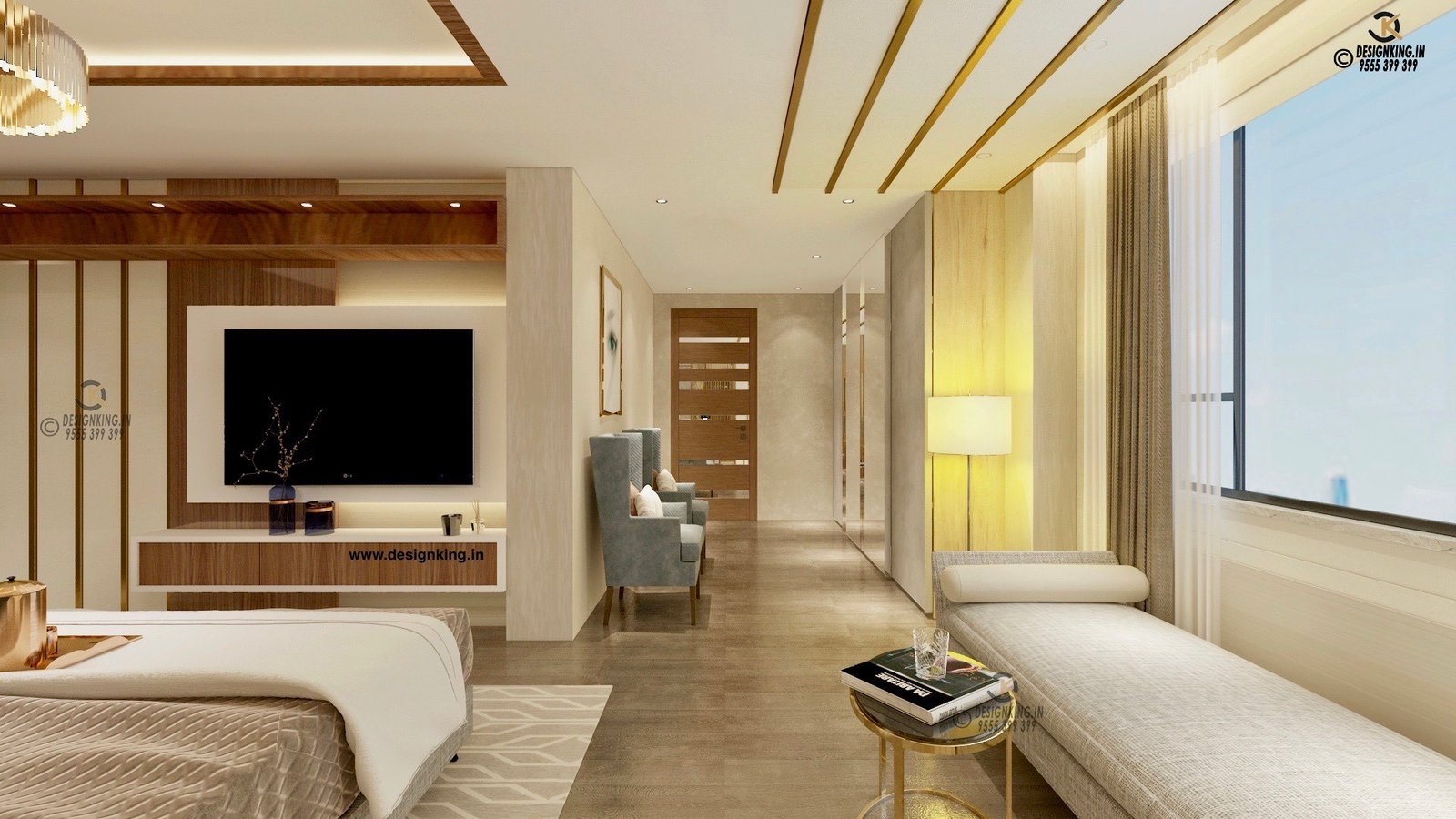Certainly! Designing a hotel bedroom involves creating a space that is comfortable, functional, and aesthetically pleasing for guests. Here’s a basic layout and some key design elements:
Layout:
- Bed: The focal point of the room. It should be comfortable with high-quality bedding, pillows, and a mattress.
- Nightstands: One on each side of the bed for placing lamps, alarm clocks, or personal items.
- Lighting: Ambient lighting, bedside lamps, and possibly overhead lighting. Dimmer switches can provide flexibility.
- Work Desk: A small desk or table with a chair for guests to work or use their laptops.
- Seating Area: If space allows, a cozy armchair or a small sofa can provide a comfortable spot for relaxation.
- Storage: A wardrobe or closet with hangers, drawers, and shelves for storing clothes and personal items.
- Entertainment: A television with access to cable or streaming services, and possibly a Bluetooth speaker.
- Mini Fridge/Refreshment Area: Providing a mini fridge or refreshment area with a kettle, coffee maker, and complimentary beverages can enhance guest satisfaction.
- Window Treatments: Curtains or blinds to control natural light and ensure privacy.
- Artwork/Decor: Select artwork or decor that complements the room’s design theme and adds visual interest.
- Climate Control: A thermostat or air conditioning unit for guests to control the room temperature.
Design Elements:
- Color Scheme: Choose calming and neutral colors such as soft blues, greens, grays, or warm earth tones to create a relaxing atmosphere.
- Textures: Incorporate a variety of textures such as plush carpets, soft bedding, and smooth wood finishes to add depth and warmth to the room.
- Accent Pieces: Introduce accent pieces like decorative throw pillows, area rugs, or statement lighting fixtures to add personality to the space.
- Mirrors: Strategically place mirrors to make the room appear larger and enhance natural light.
- Functional Accessories: Provide amenities such as a luggage rack, iron and ironing board, and a safe for guests’ convenience.
- Tech Integration: Consider integrating charging stations or USB outlets into bedside tables for guests to charge their devices easily.
- Privacy: Ensure proper soundproofing and privacy features such as solid doors and curtains that fully block out light.
- Safety: Install smoke detectors, carbon monoxide detectors, and emergency evacuation plans for guest safety.
Overall, the goal is to create a welcoming and comfortable space where guests can relax and enjoy their stay. Flexibility in design to accommodate different preferences and needs is key in hotel room design.


